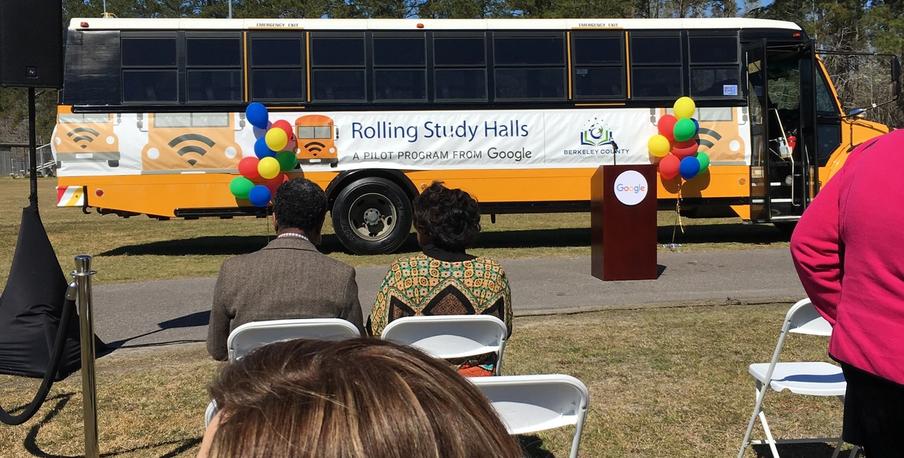A High-Tech Ride Into Innovation
Expert Insight

If you don't have school-aged children, you may be tempted to ignore this piece -- but don't. Innovation in education directs our future because it develops our future leaders.
Here in the tri-county area, there have been significant advances in how our students learn and innovate since technology and tech-related companies, like Google, have begun calling South Carolina home.
The Charleston Digital Corridor exists to enhance our local environment -- business, education and social -- and make it business-friendly for tech companies. So in 2007 when Google announced plans to locate in Berkeley County we knew that together, our community would only see technology investments grow. And they have. The technology companies - both global and local startups - are making substantial investments in our community and specifically in the education sector which will produce their future leaders.
Monday's event was a perfect example. Google's Rolling Study Hall program is a first in South Carolina. This pilot program takes advantage of the extended bus commutes for students in Berkeley County's St. Stephen, Alvin and Cross communities and develops an innovative learning space for students. Google's announcement will include the outfitting of 28 buses with WiFi and providing more than 1,700 students with Chromebooks. This is outstanding. The Rolling Study Hall program will transform a 40-60 minute bus commute, one way, into an innovative learning opportunity.
These types of "outside the classroom" learning programs are critical for our students and our region's future. Tomorrow's leaders must be able to leverage technology to succeed as it becomes increasingly pervasive in every aspect of our lives. Allowing students to see the importance of digital and technical opportunities in their environment at an early age will only increase their appreciation of this important industry sector. The added bonus with the bus program is that the technology drives through the rural areas of our community. Areas not always fully connected to technology -- until now.
Google is not alone in leading in education. In 2016, we saw 27 new Digital Corridor companies in the tri-county area and these companies are already providing an optimistic approach for students who are interested in learning more about STEM and related activities. Innovative approaches to education, including the Charleston Digital Corridor's CODEcamp Kids After School pilot program, will allow our ever-changing society to adapt to our new surroundings. Providing students with the opportunity to learn how these changing environments can help them succeed in the future is crucial and the more than 130 member companies of the Charleston Digital Corridor, who push our students to realize their tech potential is a major piece to that puzzle.
I hope the emphasis on these types of innovative educational methods and opportunities will continue to see significant growth, especially due to the large number of tech companies in our backyard. I also hope that programs like the Rolling Study Halls will begin to offer a necessary conversation about the creative opportunities we can provide our students across the region -- one innovative idea at a time.
Ernest Andrade / Charleston Digital Corridor